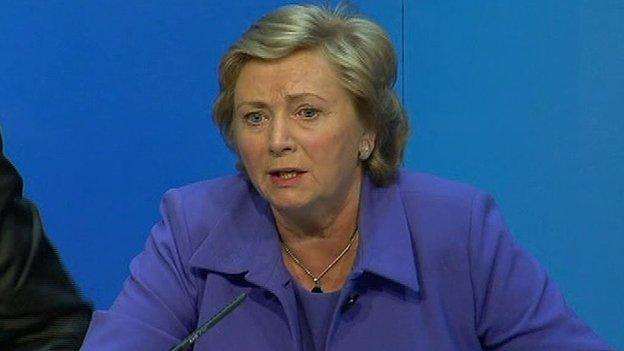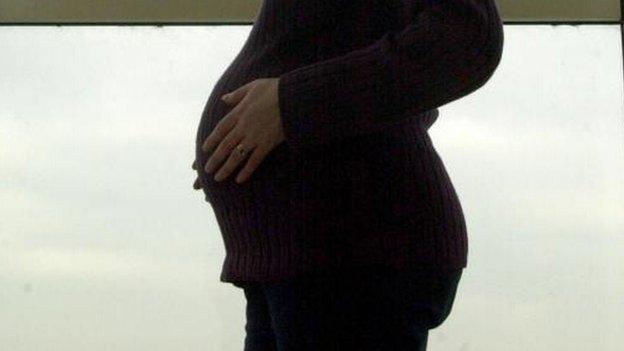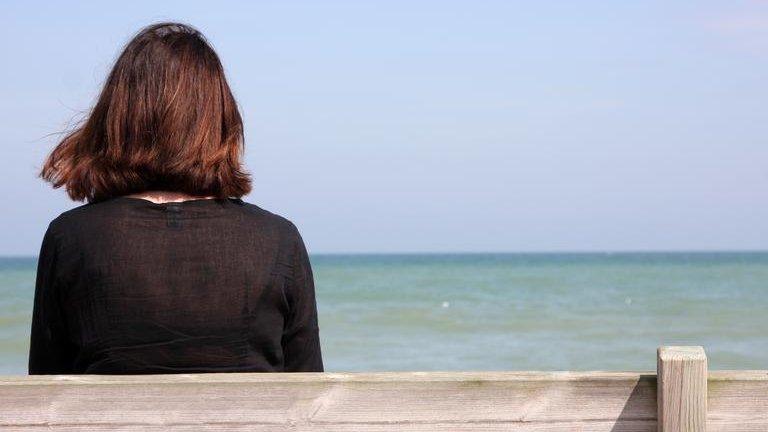Woman denied abortion in Republic of Ireland 'was raped'
- Published
The "suicidal" woman who gave birth by caesarean section after being refused an abortion in the Republic of Ireland was reportedly a victim of rape.
It has been alleged her pregnancy was the result of rape and that she first requested an abortion at eight weeks.
Health staff have been accused of refusing to end her pregnancy until the baby was viable and could be delivered by caesarean section.
Under a new law, abortion is permitted when a woman is at risk of suicide.
Very few details of her case have been released, as there is a court order in place to protect her identity and that of the child.
It is understood the young woman is a foreign national whose immigration status in Ireland meant she could not travel freely out of the state to have a termination abroad.
Under the new legislation, she was assessed by a panel of three medical experts, including two psychiatrists and an obstetrician, who decided she was at risk of suicide.
However, the panel decided not to permit an abortion in her case.
The woman, who is understood to be very vulnerable, went on hunger strike.
The Irish Health Service Executive (HSE) took the case to the High Court in Dublin, seeking an order to hydrate the woman, which was granted.
Lawyers acting for the woman argued that her request for a legal abortion, on the grounds of credible suicide, was not granted in a timely fashion.
The baby was delivered prematurely at about 25 weeks into her pregnancy and the child will now be taken into the care of the state.
The case, which has caused widespread concern among both pro-choice and anti-abortion groups, is the first high-profile test of the state's new abortion legislation.
The Protection of Life During Pregnancy Act came into force on 1 January this year.
The legislation was introduced to clarify the rules for health staff, following the case of Savita Halappanavar, who died from infection after she was refused an abortion during a miscarriage in 2012.
The Irish Health Service Executive (HSE) has refused to comment.
- Published17 August 2014

- Published16 August 2014

- Published1 January 2014
